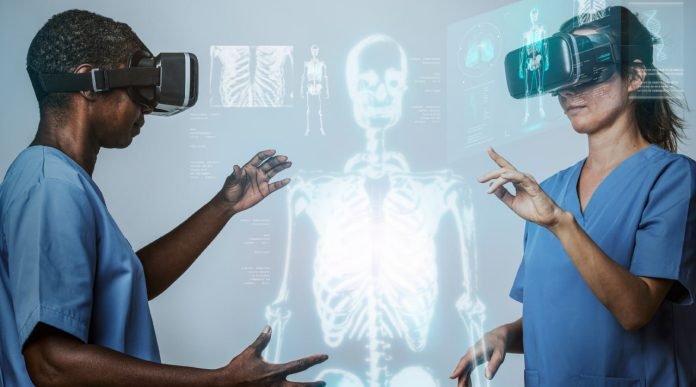The arrival of Artificial Intelligence (AI) has had a phenomenal impact on every sector, and the healthcare industry is no exception. The healthcare industry as a whole is witnessing the revolutionary impact of AI. Here we will go into detail about the importance of Google AI retinal scans.
Google, the world’s largest search engine, is leading a significant change in the medical field through AI. Google is exploring the possibility of predicting heart disease through retinal scans. Sundar Pichai, the CEO of Google, has expressed that the company is working on AI technology to detect heart diseases by scanning the iris.”The new AI techniques of Google AI retinal scans (iris scans) can predict your risk of heart disease, offering a potential alternative to traditional CT scans, MRIs, and X-rays,” say reports citing Google CEO Sundar Pichai.
Journey of Google AI in healthcare
The journey of Google AI in healthcare began around 2014, when Google started exploring applications of artificial intelligence in various healthcare fields. A previous video of Sundar Pichai explaining the revolutionary changes that AI will bring to the medical field has recently gained significant attention on Twitter and other social media sites.
Pichai states that a single retina scan can provide information about age, biological sex, smoking habits, diabetes, BMI, blood pressure, and more. If successful, it will surely bring a new form of quick and accurate method to detect serious health diseases.
Here, Google is developing algorithms that can detect signs of blindness by analysing retinal photos. Cardiovascular events can be predicted through eye scans, allowing doctors to gain a clear view of the patient’s internal body. The algorithm has proven to be correct in 70% of the cases where it has been tested so far. Earlier, Google also introduced an algorithm to predict five-year heart attack risk based on gender and smoking statistics.
Google’s AI can also assist in analysing multiple medical reports simultaneously, enabling doctors to estimate a patient’s condition after 24 or 48 hours. As the technology matures, it will certainly be a replacement for conventional medical tests such as X-rays, MRIs, and CT scans.
As AI technology continues to revolutionise the healthcare industry, it will surely improve patient care, diagnosis, and disease prevention. Looking towards the future, Google’s AI techniques could eliminate the need for the complex sequence of tests and scans currently required to diagnose cardiovascular risks.
As AI technology advances and refines, we expect to see more transformational applications in the healthcare industry, resulting in increased efficiency, accessibility, and personalization of medical care. For this, we may not have to wait any longer!
